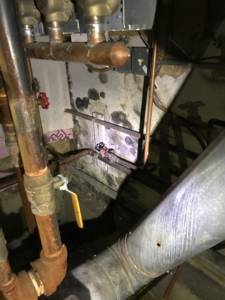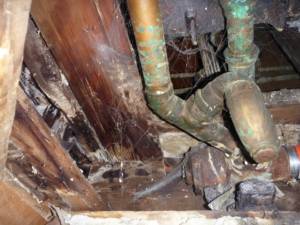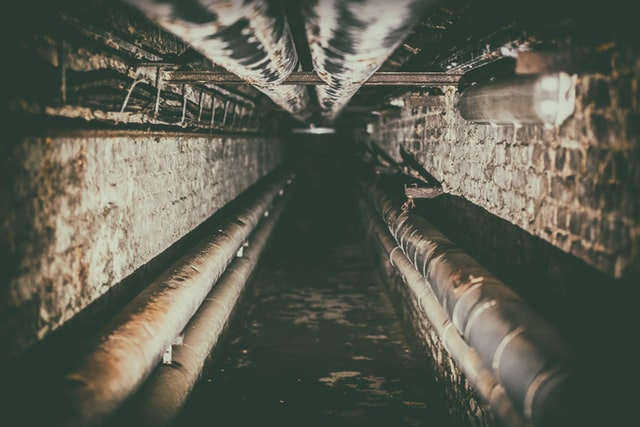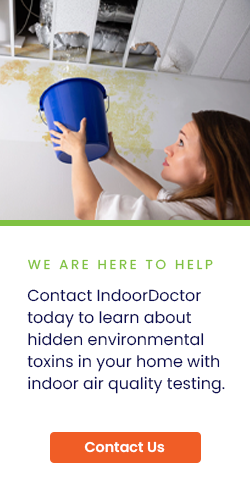Each year, water damage in homes and buildings resulting from frozen burst pipes cause billions of dollars in property damage. I think 2018 will be remembered as the year all the pipes burst just like 2015 was the year of the dams.
Cause of Burst Pipes

As water freezes, it expands and can put tremendous pressure on both metal and plastic pipes. If a pipe does break, many supply lines can easily release hundreds of gallons of water each day. This water will gradually make its way to the lowest area it can reach. This means a burst pipe on a second floor can cause water damage not only to that level of the property, but also to the floor below and the basement or crawl space.
Water escaping from a burst pipe can ruin building materials, belongings and furnishing. It can also result in structural damage and allow for the growth of mold. The presence of mold can impact the indoor air quality (IAQ) for anyone in the home or building and cause everything from allergies and hypersensitivity pneumonitis (HP) to triggering asthma in those with the condition. Some types of molds can even cause infections in people with a weakened immune system.
Prevent Burst Pipes
Fortunately, there are things people can do to help prevent pipes from freezing. They include the following:
- Insulate or heat any pipes that could be susceptible to freezing. These include hot water lines as they can also freeze when not in use. Don’t forget pipes that could be out of sight in basements, crawlspaces and attics. Remove and drain outdoor hose connections. If there is an indoor valve to these outdoor bibs turn them off, allow the pipes to drain and leave the outside valve open to allow any remaining water to expand without bursting the pipes.
- Keep garage doors closed if there are water lines located there or in garage walls. Also consider opening closets and cabinet doors inside the building to allow warm air to circulate if pipes are located behind them.
- Be sure the HVAC system in the building is operating properly. The American Red Cross recommends keeping the heat on at least 55 degrees Fahrenheit if the property will be empty. Turning the water off to the property and draining the water lines is also an option for vacant properties; however, this could prevent fire suppression systems from being able to operate.
- During extreme cold weather some people choose to allow a trickle of water to flow from a faucet to keep water in motion to prevent pipes from freezing.

In the event of a burst pipe, be sure to know where the water supply line and shutoff valve for the building is located.
These are just a few things to know about how frozen pipes can lead to water damage and mold growth. To learn more about this or other indoor environmental issues, contact IndoorDoctor today for your healthier tomorrow.





